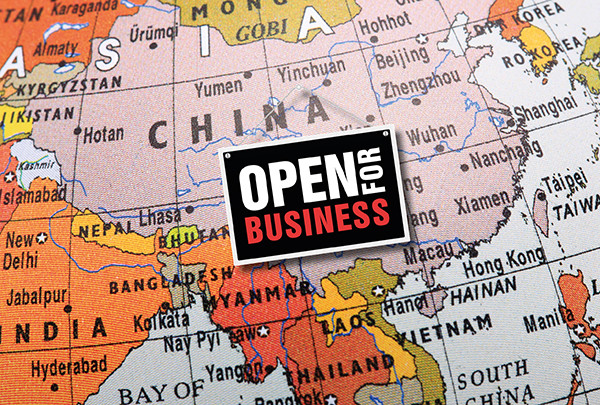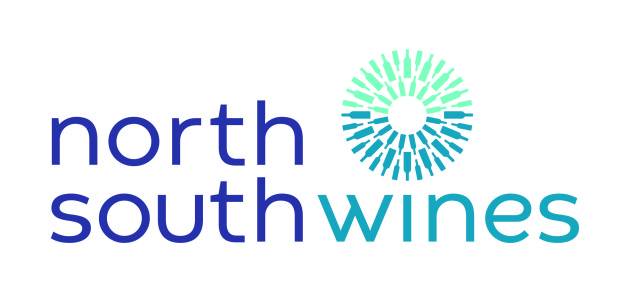
View from China: Offer of hope is on horizon
Shanghai-based Emilie Steckenborn gives a glimpse of life on the ground as China rises from lockdown
As China slowly starts to make the transition back to its pre-coronavirus (Covid-19) state, businesses and consumers alike regain confidence. In March, the number of Chinese consumers optimistic about the economic outlook of the country rose, and household spending increased week on week, according to management consultancy McKinsey & Company’s latest report.
But that’s not to say recovery will be smooth sailing. Like the vast majority
of non-essential consumer products, the drinks industry suffered a huge blow. I spoke to wine sellers and distributors operational on the ground in China to find out what contingency plans they put in place to avoid the worst of the crisis, what their plan is as normalcy slowly resumes, and what advice they have for the rest of the world.
↓
Wine sales take big hit
As quarantine measures hit China and restaurants and bars were obliged to close, sales of wine through the on-trade were virtually eliminated and consumer purchases fell for all the country’s distributors. Dan Siebers, marketing and sales director of wine importer and distributor Sarment, speaks of how, in addition to the distinct lack of sales through on-trade that the whole industry was facing, wine companies were struggling to collect payments from previous orders.
Direct-to-consumer (DTC) was the only channel generating cash flow, according to Siebers. Although it’ll take a while for Sarment to get back on its feet due to pending payments and a slow uptick in on-trade, Siebers remains optimistic about the internal situation in China. However, the likelihood of a “second wave” of economic impact to the export- driven market is yet to be determined, as the majority of the rest of the world deals with their own quarantine measures.
Édouard Duval, CEO of East Meets West (EMW), a leading boutique importer and distributor, says the impact that coronavirus has had on the wine industry has been severe, as wines are, by essence, consumed among friends and in places where people gather. The strict quarantine measures have had huge consequences on all sales channels. But the situation for EMW is on the mend.
“In February, EMW made 25% of the sales that it did the same month in 2019,” says Duval. “This number is expected to go up to 50% for March, thanks to the hard work of our team.”
The same goes for Canadian wine distributor Pillitteri Estates. The company’s VP of sales, Richard Slingerland, reports that the company is already experiencing an upsurge in orders, even from Wuhan – signalling opportunity.
It’s also worth noting the timing of the outbreak of the virus in China – the country had just undergone the Chinese New Year, the most critical period of the year for sales. Historically, February has always been the industry’s slowest month in China.
So, things are looking up for now. But how did these industry leaders ride out the worst of the crisis and emerge largely intact?
↓
Adaptability is key
Adaptability is something that all businesses affected by coronavirus – whether positively or negatively – should be trying to champion right now. For example, Siebers says the team at Sarment refocused to push for DTC sales. For Duval, the first challenge after the crisis began to calm was reopening EMW’s offices, warehouses and whole network, to restart operations without jeopardising the health and safety of staff.
The impact of the virus meant taking necessary measures to stabilise the cash flow of the company and make sure all stakeholders, shareholders, directors, teams and the general manager were on board with a new six to 12-month plan.
Duval’s advice for those not yet through the storm? “Take immediate actions to monitor and control cash flow to survive the crisis. Make decisions which are good for the next month, year and 10 years of your company.
“It’s wartime. You’ll need to rethink your business model or reallocate resources to the parts of the business that will survive. You also need to be crystal clear with communication so your entire team understand what’s at stake, what the new vision is, and their role in that plan.”
Wang Fang, owner of Kanaan Winery in Ningxia, China, also demonstrated extraordinary adaptability while sales dipped. During the period of isolation, Fang pushed online wine sales as opposed to in-person and conducted live broadcasts from her Tmall flagship store.
Given the ways in which many wineries have refocused their efforts towards online sales to survive, a lot of them will now find themselves with a new revenue stream they hadn’t dedicated energy to before. “Crises and opportunities sometimes coexist,” says Fang.
↓
Returning to normality
Mandatory closures hit the hospitality industry hard. Jeffrey Yao and Sasha Zhou, founders and partners at Bar à Vin in Shanghai, say 200 restaurants in Shanghai were forced to close down permanently due to the measures.
Even for those establishments that begin to open, consumers aren’t rushing to eat and drink in restaurants and bars. “People are used to staying at home and are going out less, even now they’re allowed to,” say Yao and Zhou. “This might be to take extra precautions, or simply because they’ve gotten used to a different rhythm.”
Fang echoes this acknowledgement
of changing consumer habits due to the virus. She speculates that now many distributors are selling wine online, there may be an uptick in at-home drinking occasions in China, as opposed to wine only being consumed at large gatherings.
↓
Team support is crucial
No business can get through a crisis this grave without the full dedication of its team. That means providing support for employees and giving them the tools to help drive the organisation through turbulent times.
During the period of isolation, businesses should be holding remote company meetings and one-to-ones with individuals and managers to offer support and guidance. For example, in my team, we used this time to leverage mutual learning opportunities and push each other to create a capstone project on competitor analysis or project development.
As for when business goes back to usual and teams come out of confinement, creating a safe and welcoming environment is vital, says Duval. It’s important to ensure their psychological wellbeing and keep morale high after such a sustained period of working remotely under stressful conditions.
↓
The road ahead
For businesses in those countries that are deep in the throes of coronavirus, it’s important to remain optimistic and see the light at the end of the tunnel. Use this time to uncover the holes in your ship. Reassess if your business is lean and structured, and don’t underestimate the value that ecommerce channels can provide. While things will move slowly and uncertainty will remain, you must find the positives in the situation and best prepare yourself to ride out this crisis.
Emilie Steckenborn is founder and host of the Bottled in China podcast





